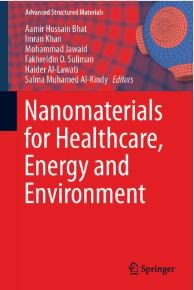abstract
The challenge of providing clean drinking water is of enormous relevance in today’s human civilization, being essential for human consumption, but also for agriculture, livestock and several industrial applications. In addition to remediation strategies, the accurate monitoring of pollutants in water supplies, which most of the times are present at low concentrations, is a critical challenge. The usual low concentration of target analytes, the presence of interferents and the incompatibility of the sample matrix with instrumental techniques and detectors are the main reasons that render sample preparation a relevant part of environmental monitoring strategies. The discovery and application of new nanomaterials allowed improvements on the pretreatment of water samples, with benefits in terms of speed, reliability and sensitivity in analysis. In this chapter, the use of nanomaterials in solid-phase extraction (SPE) protocols for water samples pretreatment for environmental monitoring is addressed. The most used nanomaterials, including metallic nanoparticles, metal organic frameworks, molecularly imprinted polymers, carbon-based nanomaterials, silica-based nanoparticles and nanocomposites are described, and their applications and advantages overviewed. Main gaps are identified and new directions on the field are suggested.
authors
Bernardo S, Sousa ACA, Neves MC, Freire MG






